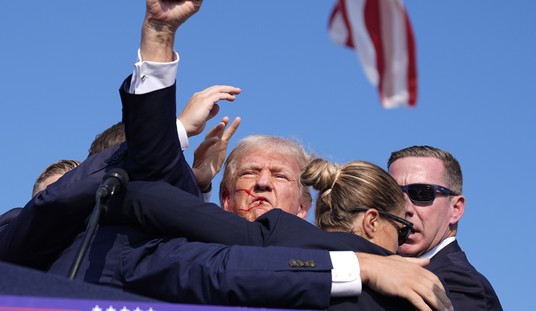As Daniel Henninger writes in the Wall Street Journal, “People thought something small, agile and smart was coming to government, but so far it’s turning out to be just big-box politics”:
In a world defined by nearly 100,000 iPhone apps, a world of seemingly limitless, self-defined choice, the Democrats are pushing the biggest, fattest, one-size-fits all legislation since 1965. And they brag this will complete the dream Franklin D. Roosevelt had in 1939.
The culture still believes the U.S. has a hipster for president. But the Obama health-care bill, and maybe this whole administration, is starting to look totally out of sync with the new zeitgeist, the spirit of the age.
Everything about the health-care exercise is looking very old hat, starting with the old guys working on it. Max Baucus, Patrick Leahy, Pete Stark—all were elected to Congress in the 1970s, and live on as the immortals in Washington’s Forever Land. But it’s more than the fact that Congress looks old. The health-care bill is big, complex, incomprehensible and coercive—all the things people hate nowadays.
It’s easy to make jokes about how insubstantial the millions of people seem to be who are constantly using technologies like Twitter. But these new digital and Web-based technologies, which have decentralized virtually everything, now occupy most of the average person’s waking hours at work or at home. Mass media is struggling to stay massive in a world whose people want to break up into many discrete markets.
The one lump that won’t change is government. Government in our time is looking out of it. It’d be one thing if government were almost cool in an old-fashioned way, but it’s not. When everyone else’s job gets measured by performance, its hallmark is malperformance—whether in Congress, California or New York.
We define the past 25 years in terms of entrepreneurs and visionaries in places like Silicon Valley who took a small idea and ran with it. Congress does the opposite. It take something already big . . . and make it bigger.
We’ve got Medicare for the elderly, with spending claims out to Mars, so let’s create Medicare for All! One of the least noticed parts of the health-care legislation is its intention to make Medicaid even bigger, when Medicaid’s cost is arguably the main thing destroying California.
There was a time when contributing to the common good meant joining something relatively small like the Peace Corps or Teach for America. Now it means being willing to just fall into line behind some huge piece of legislation.
Read Mr. Obama’s speech last week at MIT on climate change: “The folks who pretend that this is not an issue, they are being marginalized.” This, ironically, sounds a lot like the 2007 antiHillary “Big Brother” TV commercial. Its message was that Hillary represented something big and ominously coercive. Boot up that ad now and put Obama’s face where Hillary’s is.
The larger point here isn’t necessarily partisan. It’s a description of the way people live their lives in a 21st century world, and how disconnected politics has become from that world.
Exactly. Henninger isn’t the only pundit to note that Obama ran a sleek high-tech campaign, only to govern as the reincarnation of old fogeys like FDR, Hoover and Woodrow Wilson. Back in March, Michael Barone perceptively noted the disparity between Obama’s 21st century campaign, and his mid-20th century governing style:
Contrast that 21st century campaign with the mid-20th century program unveiled in the Obama budget.
Rather than give you choices in health care, Obama wants to slam you into a national health insurance program, one that, as the intended health czar Tom Daschle explained in his book, would save money by denying care. That would take us some distance toward the British system, under which, if you want a hip replacement at age 57, well, you’re just too old. Or toward the old Soviet system, which saved money by placing its cardiac clinics in a fifth-floor walkup.
Rather than give you choices in your workplace, or allow the joint management-worker cooperative system that has enabled foreign auto companies to achieve better quality and productivity than the unionized domestic automakers, Obama wants to slam you into unions whenever organizers can muscle 50 percent of workers into signing cards and then, when employers resist union demands, let federal arbitrators set wages and working conditions that you’ll have to live under whether you like it or not.
Rather than let you accumulate money for investments or self-improvement, Obama wants to tax high earnings at higher rates, and allow you to channel less of what you have made to charities and nonprofits where you can help determine how it’s spent, and send more of it to government where centralized mandarins can use it as they want.
The Obama program would have been well suited to the mid-20th century America, where people were happy, after the success of World War II, to work as small cogs in giant organizations run by big government, big business and big labor. But it is not well suited to 21st century America, where people, especially young people, are used to making their own choices, setting up their own networks, taking their own initiatives. Republicans should stop channeling Ronald Reagan — a remote figure to the young — and start offering young Americans policies that are in line with our times.
And what is the result of trying to govern a massively decentralized country using early 20th century command and control techniques? The appearance of incompetence on a massive scale. Or as Peggy Noonan puts it, “We’re Governed by Callous Children”:
It is a curious thing that those who feel most mistily affectionate toward America, and most protective toward it, are the most aware of its vulnerabilities, the most aware that it can be harmed. They don’t see it as all-powerful, impregnable, unharmable. The loving have a sense of its limits.
When I see those in government, both locally and in Washington, spend and tax and come up each day with new ways to spend and tax—health care, cap and trade, etc.—I think: Why aren’t they worried about the impact of what they’re doing? Why do they think America is so strong it can take endless abuse?
I think I know part of the answer. It is that they’ve never seen things go dark. They came of age during the great abundance, circa 1980-2008 (or 1950-2008, take your pick), and they don’t have the habit of worry. They talk about their “concerns”—they’re big on that word. But they’re not really concerned. They think America is the goose that lays the golden egg. Why not? She laid it in their laps. She laid it in grandpa’s lap.
They don’t feel anxious, because they never had anything to be anxious about. They grew up in an America surrounded by phrases—”strongest nation in the world,” “indispensable nation,” “unipolar power,” “highest standard of living”—and are not bright enough, or serious enough, to imagine that they can damage that, hurt it, even fatally.
We are governed at all levels by America’s luckiest children, sons and daughters of the abundance, and they call themselves optimists but they’re not optimists—they’re unimaginative. They don’t have faith, they’ve just never been foreclosed on. They are stupid and they are callous, and they don’t mind it when people become disheartened. They don’t even notice.
But whether it’s freakouts against Fox News, or the latest target of the Alinskyite crosshairs, Edmunds, the auto industry analyst firm, they certainly are quick to throw a temper tantrum.










Join the conversation as a VIP Member